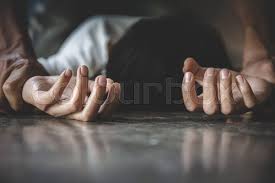By Amidat Ahmad

In the dimly lit corners of society, where silence and darkness reign, there exists a deeply troubling and pervasive epidemic that has plagued humanity for centuries.
It is an affliction that transcends borders, cultures, and backgrounds, leaving a trail of victims who bear the heavy burden of unspeakable trauma. This is the harrowing reality of rape, a scourge that demands our unwavering attention, empathy, and action.
The very mention of rape invokes a visceral response. We find ourselves grappling with a range of emotions, from anger and despair to profound empathy. It is a crime that strikes at the core of our humanity, robbing victims of their dignity and leaving them scarred, both physically and emotionally. Yet, the true extent of this issue remains obscured by a veil of silence, denial, and societal indifference.
It is time to unveil the shadows that conceal this issue, to cast a light on the suffering of survivors, and to acknowledge the enormity of the problem we face. Rape is a global crisis, affecting millions of people, and it is time to confront it head-on, not as an isolated event but as a symptom of deeper societal maladies.
The trauma experienced by survivors of rape is unimaginable. Their stories are those of resilience and courage, of strength that defies the darkest of shadows. We must listen to their voices, offering support, empathy, and understanding, without judgment or prejudice. A four-year-old girl was raped by her School headmaster, and his supposed lawyer requested the girl’s family to settle, imagine the world we now lived in. Another four-year-old girl was raped three days ago, on her way back from school but the family doesn’t want to talk about it, because of the stigma that might be tagged in the girl for the rest of her lifetime. Imagine!
When we speak of rape, we must remember that it is not a mere statistic but a devastating personal experience that leaves a lasting impact. Survivors often face not only physical injuries but also psychological scars that may last a lifetime. This trauma can lead to profound mental health issues, including post-traumatic stress disorder, depression, and anxiety. The shame, guilt, and fear that survivors carry can be overwhelming, further exacerbating their suffering.
The prevalence of rape is indicative of a broader societal issue: the perpetuation of a culture of power imbalances, gender inequality, and a disturbing tolerance of violence. In order to truly address rape, we must challenge the status quo.
Education is a powerful weapon in our battle against rape. It is essential to instill respect for consent, the importance of bodily autonomy, and the need for healthy communication from an early age. We must challenge stereotypes and redefine masculinity, promoting notions of strength rooted in empathy and respect, not dominance and aggression.
Moreover, the legal system must evolve to better protect survivors and hold perpetrators accountable. Laws surrounding rape need to be just, swift, and sensitive to the needs of survivors. Society’s attitude towards survivors must shift from victim-blaming to supporting their path to recovery.
Rape knows no boundaries, and therefore, our response to it must be a united, global movement. International organizations, governments, and individuals must collaborate to create a world where rape is no longer tolerated. It is not a mere women’s issue but a human issue, affecting all genders and ages. By joining forces, we can provide a safer, more empathetic world for all.
It’s a profoundly troubling issue, and it is time to confront it head-on. The suffering of survivors is a call to action, a demand for justice, and a plea for a more compassionate world. To end the scourge of rape, we must challenge the status quo, support survivors, and work collectively as a global community.
We have the power to create change, to break the silence, and to ensure that rape is no longer a hidden epidemic but a thing of the past. It is our collective responsibility to stand up against this crime, to champion the rights of survivors, and to create a world where the unsilenced suffering of countless individuals becomes a distant memory.
